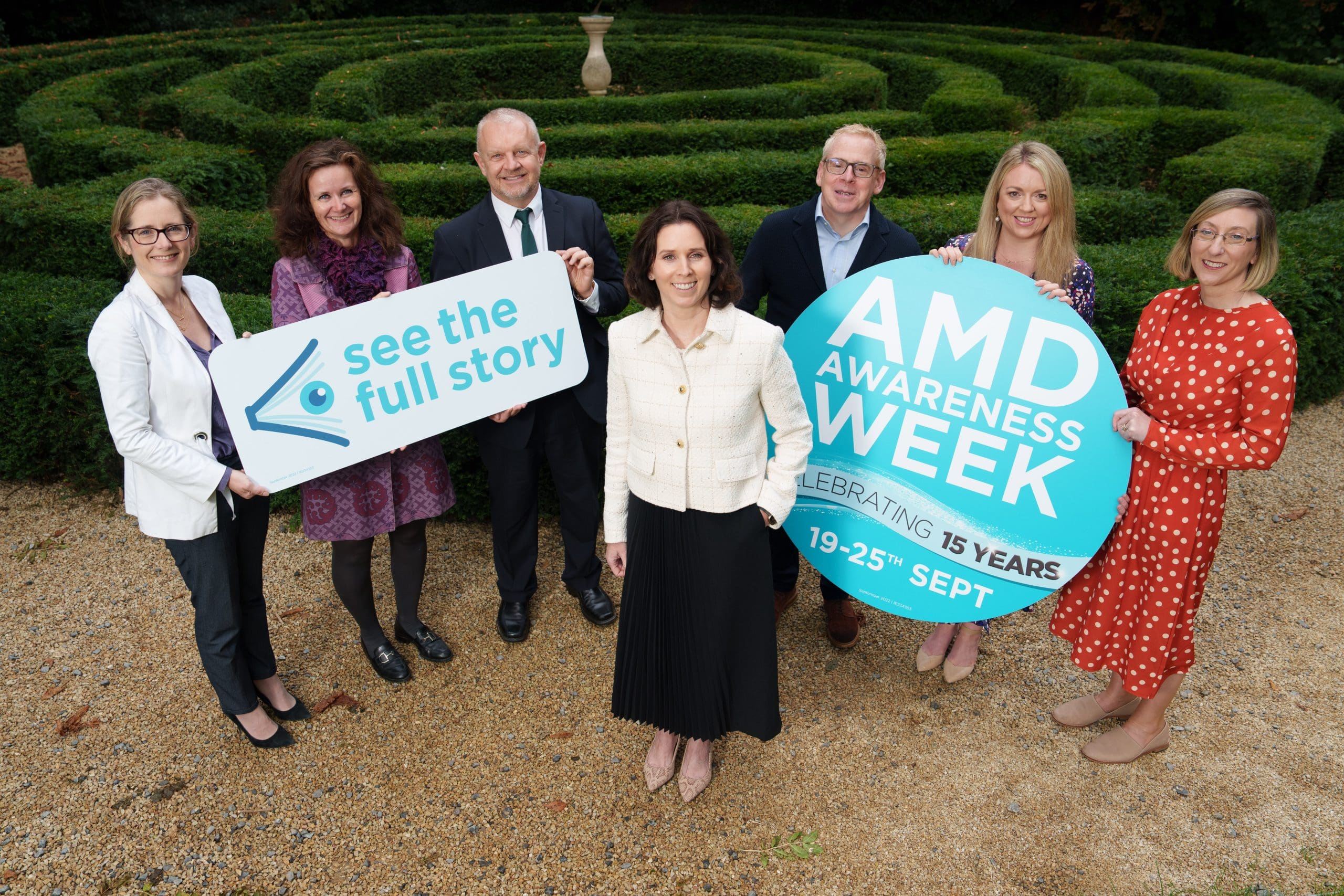
AMD (Age-related macular degeneration) Awareness Week
AMD (Age-related macular degeneration) Awareness Week September 19th-25th 2022
September 19-25th 2022 marks the 15th year of the annual AMD Awareness Week campaign in Ireland. This campaign aims to highlight the symptoms of AMD to people aged over 50 and to remind them to keep their eye health a priority.
Age-related Macular Degeneration (AMD) is the number one cause of sight loss in Ireland for those aged over 50. In AMD, a part of the retina called the macula is damaged. Only the centre of vision is affected with this disease. In advanced stages, people lose their ability to drive, to see faces, and to read smaller print. In its early stages, AMD may have no signs or symptoms, so people may not suspect they have it. It is important to realize that people rarely go blind from it.
There are two types of Age-Related Macular Degeneration
1. Dry AMD : About 85-90% of those with AMD have the dry form. Its exact cause is unknown, although both genetic and environmental factors are thought to play a role. This happens as the light-sensitive cells in the macula slowly break down, generally one eye at a time. The loss of vision in this condition is usually slow and gradual. It is believed that the age-related damage of an important support membrane under the retina contributes to dry age-related macular degeneration.
Taking oral carotenoid supplements containing lutein (10mg), zeaxanthin (2mg) and meso-zeaxanthin (10mg) can slow down the progression of dry AMD by increasing the macular pigment levels.
2. Wet AMD: Though this type is less common, it usually leads to more severe vision loss in patients than dry AMD. It is the most common cause of severe loss of vision. Wet AMD happens when abnormal blood vessels start to grow beneath the retina. They leak fluid and blood — hence the name wet AMD — and can create a large blind spot in the centre of the visual field.
How is wet AMD treated?
· The treatment for wet AMD is injections of an anti-vascular endothelial growth factor (anti-VEGF) medicine into the eye.
· The injections are done in an eye clinic with anaesthetic drops.
· The treatment consists of a loading dose of 3 injections 4 weeks apart and then an assessment to see if the wet AMD has responded.
· If the wet AMD responds to treatment the person likely will need injections for the rest of their lives, but the interval between injections can often (but not always) be extended to more than 4 weeks. An implant is being developed that is put in the eye as a surgical procedure which may be suitable for some patients.
Remember AMD will not cause a total loss of vision. If you have AMD, help and support is available to maximise your remaining vision and to help you maintain an active and independent life. Early detection is important. An eye exam helps detect eye problems at their earliest stage — when they’re most treatable.
To learn more about AMD, please visit https://www.progressivevision.ie/age-related-macular-degeneration or www.amd.ie
